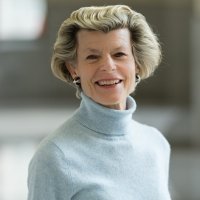The EU Confronts the Contradictions of France’s New Deal and BREXIT
The election of President Emmanuel Macron opens the opportunity to reform aspects of the European Union, including the Euro Zone. In contrast, a majority of voters in the United Kingdom voted to reject the reforms that Prime Minister David Cameron had achieved and leave the EU.
The institutions of the European Union face contradictory tendencies. A current and former senior EU official - from Sweden and Italy, respectively - will discuss the stresses and opportunities within Europe today. They will consider the options facing the European Council. How the EU institutions might carry out the reforms proposed by 27 member states in 2016 while at the same time negotiating the departure of the UK. What role is Germany likely to play? Finally, Riccardo Perissich will address the actions that the US government might contribute.
Caroline Vicini
Minister, Deputy Head of Delegation, EU Delegation to the United States
Riccardo Perissich
Coordinator for Institutional Relations at Pirelli & C. and former EU Director General for Industry
Moderator: Diana Villiers Negroponte
Woodrow Wilson Public Policy Scholar
Moderator

Hosted By

Global Europe Program
The Global Europe Program is focused on Europe’s capabilities, and how it engages on critical global issues. We investigate European approaches to critical global issues. We examine Europe’s relations with Russia and Eurasia, China and the Indo-Pacific, the Middle East and Africa. Our initiatives include “Ukraine in Europe”—an examination of what it will take to make Ukraine’s European future a reality. But we also examine the role of NATO, the European Union and the OSCE, Europe’s energy security, transatlantic trade disputes, and challenges to democracy. The Global Europe Program’s staff, scholars-in-residence, and Global Fellows participate in seminars, policy study groups, and international conferences to provide analytical recommendations to policy makers and the media. Read more
